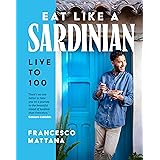Embracing a Flexitarian Diet: A Win for Your Health and the Planet
Have you ever considered how your dinner plate impacts the world around you? Perhaps you’ve noticed a growing array of delicious plant-based options appearing in grocery stores, reflecting a broader shift in dietary trends. This rising interest in sustainable eating is not just a passing fad; it represents a meaningful movement towards healthier lifestyles and a more responsible approach to environmental stewardship. As explored in the insightful “6 Minute English” segment from BBC Learning English, adopting a flexitarian diet offers significant advantages for both personal well-being and the global fight against climate change.
Imagine a world where every meal you enjoy contributes positively to the health of your body and the planet’s ecosystem. This vision is becoming an achievable reality through conscious and informed food choices. Many individuals are discovering that embracing a more plant-based approach does not mean compromising on flavor or culinary enjoyment. Instead, it unlocks a diverse and vibrant gastronomic landscape, rich in fresh ingredients and exciting new recipes, guiding us towards a truly sustainable eating paradigm.
What Exactly is a Flexitarian Diet?
The term “flexitarian” ingeniously combines “flexible” and “vegetarian,” perfectly encapsulating a dietary pattern that primarily focuses on plant-based foods while allowing for the occasional inclusion of meat. This balanced approach provides an accessible and less daunting pathway for those who are not yet prepared to commit to full vegetarianism or veganism. It empowers individuals to reap substantial health and environmental benefits without the strict dietary exclusions often associated with other plant-focused diets, proving that gradual changes can lead to profound impacts.
Crucially, unlike rigid vegetarian or vegan lifestyles, the flexitarian diet embraces a certain degree of freedom, permitting the occasional consumption of meat, poultry, or fish. This inherent flexibility often makes it a more appealing and sustainable long-term choice for a diverse array of people. The core principle revolves around consciously reducing overall meat intake and prioritizing meals centered around plants, rather than imposing an absolute ban on animal products. This thoughtful balance enables individuals to align their dietary habits with their personal health goals, ethical beliefs, and environmental values effectively.
Ethical Considerations and the Environmental Imperative
Beyond the compelling personal health advantages, a significant number of people choose to reduce their meat consumption due to deeply held ethical convictions. These individuals often feel that it is morally wrong for animals to be raised in often-unnatural conditions and then slaughtered solely for human food, advocating passionately for the rights and welfare of sentient beings. This ethical stance frequently extends to serious concerns regarding the intensive practices prevalent in industrial farming operations, which can raise profound questions about animal cruelty and the humane treatment of livestock within the food system. Such moral arguments serve as a powerful catalyst for evolving dietary choices globally.
The colossal environmental impact of our modern global food system stands as another critical factor compelling an urgent reconsideration of our collective dietary habits. As Dr. Marco Springmann from the prestigious University of Oxford emphatically highlighted in the BBC discussion, our daily food choices directly influence the escalating climate change crisis. Livestock farming, for example, contributes a disproportionately large share to global greenhouse gas emissions, primarily through methane produced by ruminant animals and nitrous oxide released from the widespread use of fertilizers in feed crop cultivation. These extremely potent gases trap heat within our atmosphere, significantly intensifying the adverse effects of global warming.
Furthermore, the sheer scale of global meat production demands vast tracts of land and immense quantities of precious water resources, frequently leading to large-scale deforestation for new grazing pastures and the expansion of feed crop monocultures. This destructive pattern of habitat loss directly contributes to a critical decline in biodiversity and severely disrupts delicate ecological balances across the globe. By consciously shifting towards a more plant-based diet, we can significantly mitigate these overwhelming environmental pressures, paving a clear path towards a more sustainable and resilient planet for generations yet to come. Reducing your personal carbon footprint demonstrably begins with the choices you make on your plate.
A Combination of Measures for a Sustainable Future
Dr. Springmann’s groundbreaking research convincingly underscores that effectively addressing the multifaceted environmental crisis emanating from our global food system necessitates a comprehensive and integrated strategy. It is unequivocally clear that no single solution will suffice; rather, a harmonious combination of ambitious and innovative measures must be implemented in concert. These vital actions include significant societal shifts towards healthier, predominantly plant-based diets, which inherently reduces the massive demand for resource-intensive animal products. Prioritizing these fundamental dietary changes can initiate a powerful ripple effect, driving transformative adjustments throughout the entire food supply chain.
Revolutionary technological improvements also represent absolutely vital components of this overarching sustainable transformation. We urgently require impressive, visionary advancements that transcend conventional, ordinary solutions and push the boundaries of innovation. Consider, for instance, the transformative potential of vertical farming, a cutting-edge technique that dramatically minimizes land and water usage by cultivating crops in precisely controlled, stacked indoor layers. Furthermore, groundbreaking innovations in alternative proteins, encompassing sophisticated plant-based meat substitutes and the rapidly developing field of lab-grown or cultured meat, offer incredibly promising avenues for fulfilling global protein needs with a substantially reduced environmental footprint. These pivotal developments are indispensable for sustainably nourishing an ever-growing global population in the 21st century and beyond.
Profound changes in global farming management practices constitute yet another absolutely essential pillar of this sustainability strategy. The widespread implementation of regenerative agriculture techniques, which meticulously focus on enhancing soil health, fostering biodiversity, and actively sequestering atmospheric carbon, can fundamentally transform conventional agricultural models into powerful allies in the ongoing fight against climate change. This holistic approach encompasses practices such as strategic cover cropping, vastly reduced tillage, and the adoption of diverse, multi-species crop rotations. Moreover, the widespread adoption of more efficient irrigation methodologies and a drastic reduction in reliance on environmentally damaging synthetic fertilizers play profoundly significant roles in minimizing the overall ecological impact of global food production.
Finally, a substantial reduction in pervasive food loss and waste, occurring at every stage across the entire supply chain, is of paramount importance. From inefficient harvesting techniques and sub-optimal transportation logistics to rampant consumer waste within households, it is estimated that a staggering one-third of all food produced globally is tragically never actually consumed. Effectively tackling this immense issue demands significant improvements in infrastructure, the widespread adoption of superior food storage and preservation practices, and comprehensive educational campaigns designed to foster more responsible consumption behaviors among the public. Minimizing food waste systematically conserves invaluable resources and critically reduces greenhouse gas emissions emanating from landfills, ensuring that every single effort made truly contributes to a more sustainable future.
Red Meat: A Luxury, Not a Staple
One of the most actionable and impactful insights derived from the extensive research discussed in the “6 Minute English” segment directly pertains to our consumption of red meat. Dr. Springmann’s meticulous survey of authoritative scientific literature strongly suggests that for achieving optimal human health outcomes and maximizing environmental benefits, red meat—a category encompassing beef, pork, and lamb—should be consciously regarded as a luxury item. This crucial reclassification implies that it should be savored sparingly, ideally limited to no more than one serving per week. By intentionally treating red meat as an occasional, special treat rather than a regular dietary component, individuals can align their eating habits with both contemporary nutritional guidelines and overarching ecological responsibility.
Consider red meat in the same contextual light as you would other genuine luxury foods—those exquisite items you truly cherish and enjoy, but which are deliberately reserved for exceptional occasions. This category might include decadent desserts, rare culinary delicacies, or fine, aged wines. By consciously reframing our perception of red meat in this manner, we can profoundly appreciate its unique flavors and textures without elevating it to a daily dietary staple, thereby significantly reducing its immense environmental burden. This powerful perspective shift empowers individuals to make inherently healthier and more sustainable choices, all without feeling completely deprived of their most cherished foods.
Numerous comprehensive studies consistently demonstrate a clear link between excessive consumption of red meat, particularly processed varieties, and various adverse health conditions. These can include an increased risk of heart disease, certain types of cancer, and other chronic ailments, often attributed to high saturated fat content and the presence of harmful compounds formed during processing. Conversely, purposefully shifting towards a diet that incorporates less red meat and features a greater diversity of nutrient-rich plant-based protein sources—such as beans, lentils, nuts, seeds, and tofu—provides an abundance of essential nutrients. This holistically balanced approach not only profoundly supports long-term human health but also simultaneously contributes to a much smaller carbon footprint, a benefit for all.
The Power of Evidence-Based Decisions
The recommendations thoughtfully put forth by Dr. Springmann and his esteemed research team are not merely subjective opinions or speculative theories; rather, they are profoundly rooted in rigorous and extensively peer-reviewed scientific inquiry. As the BBC segment astutely noted, their methodology involved thoroughly “surveying the literature,” which means they meticulously reviewed, critically analyzed, and synthesized a vast body of previously published scientific research pertaining to healthy diets and complex food systems. This painstaking and meticulous process ensures that their actionable advice is firmly predicated on robust empirical evidence and widely accepted scientific consensus, thereby providing an incredibly reliable and trustworthy foundation for informed decision-making regarding our food choices.
A deeper understanding that these crucial dietary and environmental recommendations are unequivocally backed by extensive, rigorous research instills a profound sense of confidence in their inherent validity and efficacy. It powerfully underscores the paramount importance of relying on expert analysis and comprehensive data-driven insights, as opposed to unsubstantiated anecdotal claims, when making significant decisions concerning both our personal health and the collective well-being of our planet. This unwavering commitment to providing evidence-based advice genuinely empowers individuals to enact impactful and meaningful changes, secure in the knowledge that their actions are precisely aligned with the very best available scientific understanding.
Beyond the Plate: Interesting Food Facts
While engaging in discussions about healthy eating habits and the significant environmental impact of our food choices, it is genuinely fascinating to briefly consider some common, yet often surprising, misconceptions about everyday foods. For example, many people intuitively categorize peppers as vegetables, a classification deeply embedded in culinary tradition rather than precise botanical science. However, from a strictly botanical perspective, a fruit is technically defined as the mature, ripened ovary of a flowering plant that encloses the seeds. Consequently, by this precise scientific definition, peppers are indeed classified as fruits.
This intriguing botanical classification places peppers within the same scientific group as other rather surprising “fruits,” including familiar items like tomatoes, expansive pumpkins, creamy avocados, and even briny olives. This delightful tidbit serves as a charming reminder that our everyday, practical understanding of food can often diverge quite significantly from strict scientific definitions, thereby adding another layer of intellectual interest to our broader exploration of what we consume. The captivating world of food is undeniably replete with such delightful, and frequently unexpected, scientific nuances.
Cultivating a Healthier Future with a Flexitarian Diet
Adopting a flexitarian diet truly presents an incredible, transformative opportunity to positively influence both individual well-being and the collective global environmental health. By making conscious and deliberate choices to actively reduce meat consumption and prioritize nutrient-dense, plant-based foods, individuals contribute directly and substantially to the development of a more sustainable and resilient food system. This balanced and forward-thinking approach supports a healthier body, cultivates a more ethical relationship with animals, and leads to a significantly reduced carbon footprint on our precious planet. The journey towards a more sustainable and fulfilling way of eating authentically begins on your plate, one delicious, plant-rich meal at a time.
Fork in the Road: Your Q&A on Environmental Eating
What is a flexitarian diet?
A flexitarian diet is primarily plant-based, focusing on fruits, vegetables, and grains, but it also allows for the occasional inclusion of meat. It’s a flexible approach for those not ready for full vegetarianism or veganism.
Why should I consider a flexitarian diet?
You should consider a flexitarian diet because it offers significant benefits for both your personal health and the environment. It helps you eat healthier and contributes to reducing climate change impacts.
How does eating less meat help the environment?
Eating less meat helps the environment by reducing greenhouse gas emissions from livestock farming. It also lessens the demand for vast amounts of land and water resources used in meat production.
How often should I eat red meat on a flexitarian diet?
On a flexitarian diet, red meat like beef, pork, and lamb should be treated as a luxury item. It is recommended to eat it sparingly, ideally no more than one serving per week.











